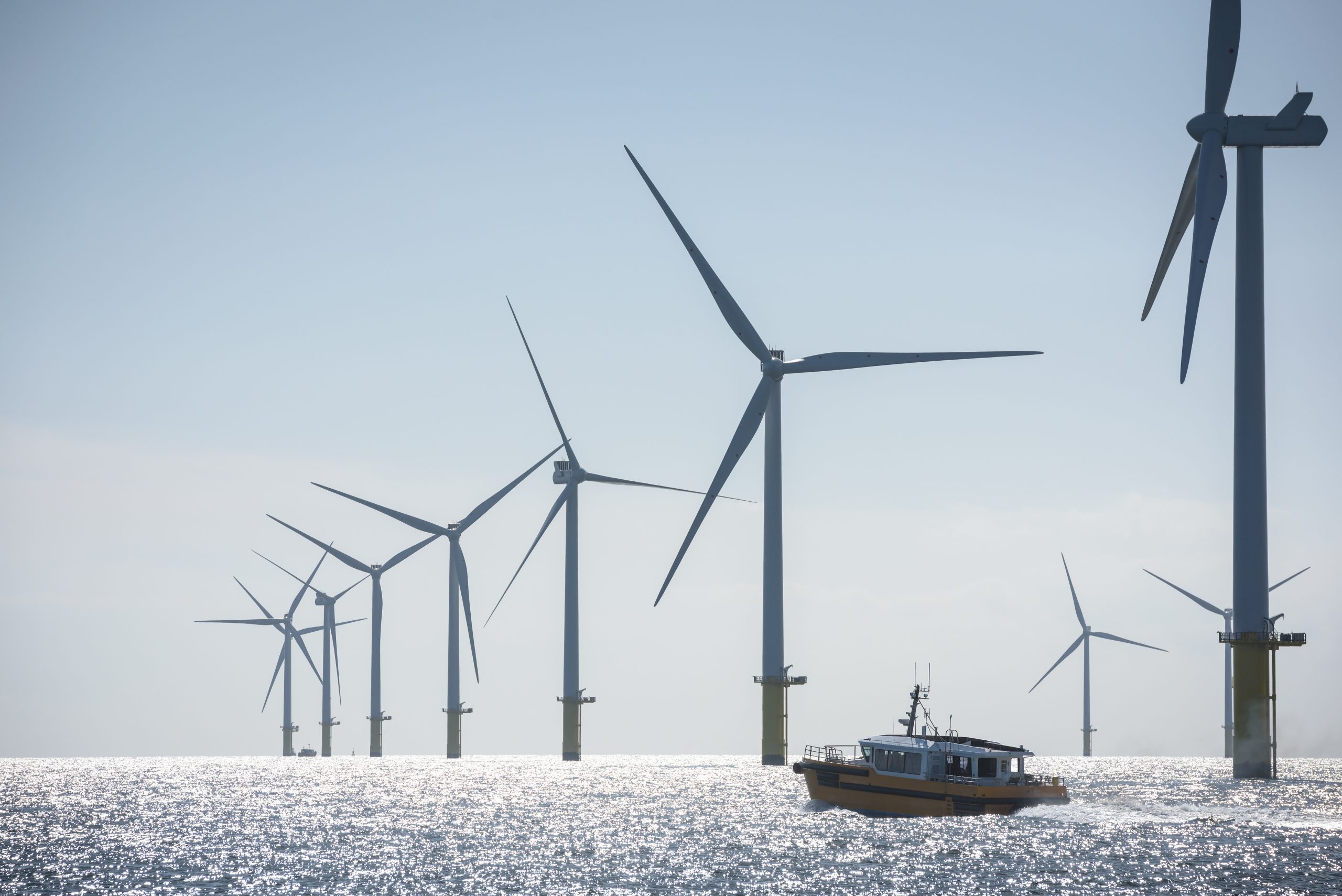About
The Northeast States Collaborative on Interregional Transmission (States Collaborative) is made up of representatives from the state commissions, agencies or governors’ offices of nine states – Connecticut, Delaware, Maine, Maryland, Massachusetts, New Jersey, New York, Rhode Island, and Vermont – that have come together to coordinate on transmission grid expansion efforts in coordination with the U.S. Department of Energy (DOE).
The States Collaborative provides a central organization for interested states to coordinate with DOE, independent system operators/regional transmission organizations, and other stakeholders on identifying key transmission priorities and developing practical solutions to building out the onshore and offshore transmission grid. The Eastern Seaboard is home to three independent system operators, each with its own transmission planning processes, making state cooperation across regional grid boundaries critical to cost-effectively meeting state clean energy goals.
On July 9, 2024, ten states entered into a Memorandum of Understanding (MOU) to formalize the States Collaborative’s efforts and accelerate the siting and permitting of regional and interregional transmission facilities, including both on-shore and offshore options. The MOU reflects that:
- Identifying shared transmission priorities and proactively integrating them into regional transmission planning processes may yield substantial benefits to the citizens of each state;
- Federal policy and programmatic support is desirable to facilitate regional and interregional transmission planning for offshore wind and other clean energy objectives; and
- The establishment of common technical standards for offshore wind transmission facilities that would have the potential to reduce the cost of meeting federal and State offshore wind goals and ensure current transmission procurements are forward compatible with future interregional transmission projects.]
The States Collaborative is facilitated by Abraham Silverman, who is an associate research scholar with the Ralph O’Connor Sustainable Energy Institute (ROSEI) at Johns Hopkins University.
History
“Rather than wait for new regulatory mandates to spur action, we can collectively take steps now to consider expanding ties between our regions to help enhance system reliability and transition to a clean energy future more quickly and affordably.” – States Collaborative Letter, June 16, 2023
On June 16, 2023, eight states sent a letter to Maria Robinson, Director of the Grid Deployment Office at DOE, requesting that DOE make “funding available through your office for planning, modeling, and analysis and to facilitate stakeholder discussion.” The Collaborative sought to “work in partnership” with the DOE “to explore opportunities for increased interconnectivity, including for offshore wind, between our regions.”
In early November 2023, over 50 senior DOE staff and state energy officials convened for a two-day series of roundtable discussion and presentations from representatives from industry, grid managers, and federal agencies.
2025 RFI
The Northeast States Collaborative held a Request for Information (“RFI”), seeking ideas to use interregional transmission to lower customer costs and improve grid reliability, which closed on October 23, 2025. There was a robust response to the RFI, with submissions from 18 entities. Of these, 10 respondents submitted 36 unique transmission project concepts. The RFI responses also included 6 support letters and 4 conceptual submissions that did not propose specific projects.
Respondents identified potential new and upgraded transmission facilities, innovative grid management tools, and their support for the collaborative’s approach to pursuing interregional transmission. The Collaborative appreciates receiving the RFI responses and has started to work with The Brattle Group to review the responses and undertake a more detailed evaluation through mid-2026. RFI responses were received from:
- Alliance Transmission / GridUnited
- Avangrid
- Central Hudson Electric Transmission
- Commissioner Kerrick Johnson
- CTC Global
- EnergyRE / PPL TransLink
- Eversource
- HQ
- Massachusetts Municipal Wholesale Electric Company
- NationalGrid
- NextEra
- NJ OSW Alliance
- NY Transco
- NYPA
- PingThings
- Renewable New York, LLC
- TDI
- VELCO
Responses were filed on a confidential basis, but summaries will be made available as the process continues.
Documents
- July 28, 2025: Frequently Asked Questions for the Request for Proposals to Consultants to Support the Northeast States Collaborative’s Transmission RFI
- The States Collaborative hosted a webinar for potential respondents to its recent Request for Information process on August 7. Here is a copy of the presentation.
- July 14, 2025: Consultant Scope of Work
- June 23, 2025: Request for Information on Interregional Transmission
- April 28, 2025: Strategic Action Plan on State-Led Interregional Transmission Priorities
- February 25, 2025: Comments of Nine States to FERC on the Benefits of Interregional Transmission
- October 3, 2024: Whitepaper: HVDC Equipment Standardization and Supply Chain Considerations for Offshore Wind Transmission
- July 9, 2024: Memorandum of Understanding
- March 11, 2024: Loss of Source Letter to the three Eastern grid operators
- June 16, 2023: Letter to the Department of Energy
Press
- June 24, 2025: State of New Jersey Press Release on RFI on Interregional Transmission
- June 23, 2025: State of Massachusetts Press Release on RFI on Interregional Transmission
- April 28, 2025: State of Massachusetts Government
- April 28, 2025: State of Connecticut Government
- April 28, 2025: State of New York Government
- July 11, 2024: Ralph O’Connor Sustainable Energy Institute (ROSEI)
- July 9, 2024: State of New Jersey Government
- July 9, 2024: State of Massachusetts Government
- July 9, 2024: State of Connecticut Government
April 29, 2025 Webinar Materials
The States Collaborative hosted a webinar on April 29, 2025 to discuss the strategic action plan on state-led interregional transmission priorities. Here are the slides from the presentation, as well as the recording of the webinar. You can find both below on this page, too.
Skip to PDF contentAugust 14, 2025 Webinar
The webinar addresses questions associated with the Northeast State Collaborative on Interregional Transmission’s Request for Information on identifying candidate transmission projects that increase interregional transmission capability. Panelists, including Abe Silverman, Sue Glatz and Joe DeLosa describe the Collaborative’s approach to identifying potential interregional projects and answered questions from potential respondents.
